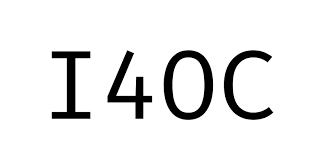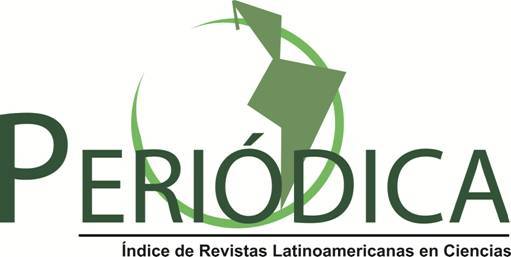Effect of microbial biostimulants on the size and weight of bell pepper and tomato fruits under protected conditions of macrotunnel
DOI:
https://doi.org/10.18633/biotecnia.v25i1.1772Keywords:
Genifix, Bacillus, Trichoderma, vegetables, protected agricultureAbstract
The intensive production of vegetables has caused excessive dependence on chemical fertilization, which has generated environmental and food safety problems. An option to reduce the amount of synthetic fertilizers is the management of nutrients through microbial inoculations. The objective of this study was to evaluate the effect of two biostimulants based on Trichoderma spp. and one from Bacillus spp., on the diameter, length and weight of bell pepper and tomato fruits under macrotunnel conditions. The treatments were: Genifix®, T22®, Mix® and control (blank). A completely randomized block design with four repetitions was used. Three harvests were made per crop. The response variables were: weight, diameter and fruit length, in addition to the weight of 20 fruits chosen at random. The fruits obtained with the Genifix treatment were larger and heavier, with significant differences from the rest of the treatments. The T22 and Mix also showed a significant effect on the development of larger and heavier fruits in relation to the control in most harvests. The evaluated biostimulants improved the size and weight of bell pepper and tomato fruits in plants with minimal traditional fertilization management under macrotunnel conditions.
Downloads
References
Adame-García, J., Murillo-Cuevas, F.D., Flores-de la Rosa, F.R., Velázquez-Mendoza, V., López-Vázquez, M., Cabrera-Mireles, H. y Antonio-Vázquez, E. 2021. Identificación molecular y evaluación de bacterias en el desarrollo vegetativo y producción de chile habanero. Biotecnia. 23(3): 151.157.
Benbi, D.K. 2013. Greenhouse Gas Emissions from Agricultural Soils: Sources and Mitigation Potential. Journal of Crop Improvement. 27(6): 752-72.
Candelero, D.J., Cristóbal, A.J., Reyes, R.A., Tun, S.J.M., Gamboa, A.M.M y Ruíz, S.E. 2015. Trichoderma spp. promotoras del crecimiento en plántulas de Capsicum chinense Jacq. y antagónicas contra Meloidogyne incognita. ΦYTON. 84: 113-119.
Chen, L., Vigneault, C., Vijaya, R.G.S. y Kubow, S. 2007. Importance of the phytochemical content of fruits and vegetables to human health. Stewart Postharvest Review. 3: 1-5.
Daverede, I.C., Kravchenko, A.N., Hoeft, R.G., Nafziger, E.D., Bullock, D.G., Warren, J.J. y Gonzini, L.C. 2004. Phosphorus runoff from incorporated and surface-applied liquid swine manure and phosphorus fertilizer. Journal of Environmental Quality. 33:1535-1544.
Espinosa-Palomeque, B., Cano-Ríos, P. Salas-Pérez, L., García-Hernández, J.L., Preciado-Rangel1, P., Sáenz-Mata, J. y Reyes-Carrillo, J. L. 2019. Bioinoculantes y concentración de la solución nutritiva sobre la producción y calidad de tomate. Biotecnia. 21(3): 100-107.
Espinoza, A.C.A., Gallegos, M.G., Ochoa, F.Y.M., Hernández, C.F.D., Méndez, A.R. y Rodríguez, G.R. 2019. Antagonistas microbianos para biocontrol de la marchitez y su efecto promotor en el rendimiento de chile serrano. Revista Mexicana de Ciencias Agrícolas, publicación especial 23: 187-197.
Fernando, D., Milagrosa, S., Francisco, C. y Francisco, M. 2018. Biostimulant Activity of Trichoderma saturnisporum in Melon (Cucumis melo). HORTSCIENCE 53(6):810-815.
Hervert-Hernández, D., García, O.P., Rosado, J.L. y Goñi, I. 2011. The contribution of fruits and vegetables to dietary intake of polyphenols and antioxidant capacity in a Mexican rural diet: Importance of fruit and vegetable variety. Food Research International. 44: 1182-1189.
INAP. 2013. Diagnósticos Municipales PACMA, entidad: Veracruz de Ignacio de la Llave, Municipio: Úrsulo Galván. Instituto Nacional de Administración Pública. México 49p.
Larios, L.E.J., Valdovinos, N.J. de J.W., Chan, C.W., García, L.F.L., Manzo, S.G. y Buenrostro, N.M.T. 2019. Biocontrol de Damping off y promoción del crecimiento vegetativo en plantas de Capsicum chinense (Jacq) con Trichoderma spp. Revista Mexicana de Ciencias Agrícolas. 10: 471-483.
Luna, M.R.A., Reyes, P.J.J., Espinosa, C.K.A., Luna, M.M.V., Luna, Q.F.V., Celi, M.M.V., Espinoza, C.A.L., Rivero, H.M., Cabrera, B.D.A., Alvarado, M.A.F. y González, R.J.C. 2016. Efecto de diferentes abonos orgánicos en la producción de tomate (Solanum lycopersicum, L). Biotecnia. 18(3): 33-36.
Mendivil-Lugo, C., Nava-Pérez, E., Armenta-Bojórquez, A.D., Ruelas-Ayala R.D., Félix Herrán, J.A. 2020. Elaboración de un abono orgánico tipo bocashi y su evaluación en la germinación y crecimiento del rábano. Biotecnia. 22(1): 17-23.
Murillo, C.F.D., Cabrera, M.H., Adame, G.J., Vásquez, H.A., Martínez, G.A. de J. y Luria, M.R. 2021. Bioestimulantes en la calidad en la calidad de frutos de chile habanero. Revista Mexicana de Ciencias Agrícolas. 12(18): 1473-1481.
Noh, M. J., Yam, C.C., Borges, G.L. Zúñiga, A.J.J. y Hernández, G.G. 2014. Aislados bacterianos con potencial biofertilizante para plántulas de tomate. Terra latinoamericana. 32(4): 273-281.
Ortuño, N., Miranda, C. y Claros, M. 2013. Selección de cepas de Trichoderma spp. Generadoras de metabolitos secundario de interés para su uso como promotor de crecimiento en plantas cultivadas. Journal of the Selva Andina Biosphere. 1: 16-32.
Paudel, B.R., Udawatta, R.P., Kremer, J.R., y Anderson, S.H. 2012. Soil quality indicator responses to row crop, grazed pasture, and agroforestry buffer management. Agroforestry Systems. 84: 311-323.
Ramya, V. y Patel, P. 2019. Health benefits of vegetables. International Journal of Chemical Studies. 7: 82-87.
Pérez, G.Y., Ayala, S.J.L., Calero, H.A. 2013. Efecto bioestimulante de dos formulados líquidos de Trichoderma harzianum Rifai A-34 en la producción protegida de tomate el cultivo de tomate protegido. Centro Agrícola. 40: 53-56.
Reyes-Pérez, J.J., Luna-Murillo, R.A., Zambrano-Burgos, D., Vázquez-Morán, V.F., Rodríguez-Pedroso, A.T., Ramírez-Arrebato, M.Á., Guzmán-Acurio, J.A., González- Rodríguez, J.C. y Torres-Rodríguez, J.A. 2018. Efecto de abonos orgánicos en el crecimiento y rendimiento agrícola de la berenjena (Solanum melongena L.). Biotecnia. 20(1): 8-12.
Rojas-Badía, M.M., Bello-González, M.A., Ríos-Rocafull, Y., Lugo-Moya, D. y Rodríguez, S.J. 2020. Utilización de cepas de Bacillus como promotores de crecimiento en hortalizas comerciales. Acta Agronomica. 69(1): 54-60.
Rojas-Solís, D., Contreras-Pérez, M. y Santoyo, G. 2013. Mecanismos de estimulación del crecimiento vegetal en bacterias del género Bacillus. Biológicas.15(2): 36-41.
Ruiz-Cisneros, M.F., Ornelas-Paz, J.J., Olivas-Orozco, G.I., Acosta-Muñiz, C.H., Sepúlveda-Ahumada, D.R., Zamudio-Flores, P.B., Berlanga-Reyes, D.I., Salas-Marina, M.A., Cambero-Campos, O.J., Rios-Velasco, C. 2018. Effect of Bacillus strains alone and in interaction with phytopathogenic fungi on plant growth and tomato fruit quality. Revista Bio Ciencias. 6: 1-17.
Sánchez L.D.B., Gómez-Vargas, R.M., Garrido, R.M.F. y Bonilla, B.R.R. 2012. Inoculación con bacterias promotoras de crecimiento vegetal en tomate bajo condiciones de invernadero. Revista Mexicana de Ciencias Agrícolas. 3(7): 1401-1415.
Sánchez, L., Dıez, J.A., Vallejo, A. y Cartagena, M.C. 2001. Denitrification losses from irrigated crops in central Spain. Soil Biology & Biochemistry. 33: 1201-1209.
Sosa-Pech, M., Ruiz-Sánchez, E., Tun-Suárez, J.M., Pinzón-López, L.L. y Reyes- Ramírez, A. 2019. Germinación, crecimiento y producción de glucanasas en Capsicum chinense Jacq. inoculadas con Bacillus spp. Ecosistemas y Recursos Agropecuarios. 6:137-143.
Tejera-Hernández, B., Rojas-Badía, M.M. y Heydrich-Pérez, M. 2011. Potencialidades del género Bacillus en la promoción del crecimiento vegetal y el control biológico de hongos fitopatógenos. Revista CENIC Ciencias Biológicas. 42(3): 131-138.
Torres, R.J.A., Reyes, P.J.J. y González, R.J.C. 2016. Efecto de un bioestimulante natural sobre algunos parámetros de calidad en plántulas de tomate (Solanum lycopersicum, L.) bajo condiciones de salinidad. Biotecnia. 18(2): 11-15.
Ye, L., Zhao, X., Bao, E., Li, J., Zou1, Z. y Cao, K. 2022. Bio-organic fertilizer with reduced rates of chemical fertilization improves soil fertility and enhances tomato yield and quality. Scientific Reports. 10:1-11.
Downloads
Published
How to Cite
Issue
Section
License
Copyright (c) 2022

This work is licensed under a Creative Commons Attribution-NonCommercial-ShareAlike 4.0 International License.
The journal Biotecnia is licensed under the Attribution-NonCommercial-ShareAlike 4.0 International (CC BY-NC-SA 4.0) license.

















_(2).jpg)







